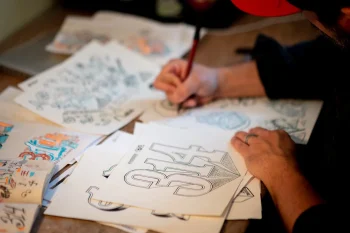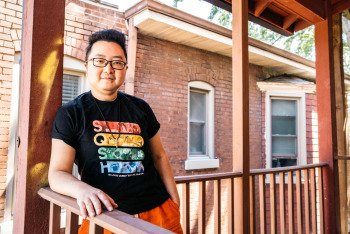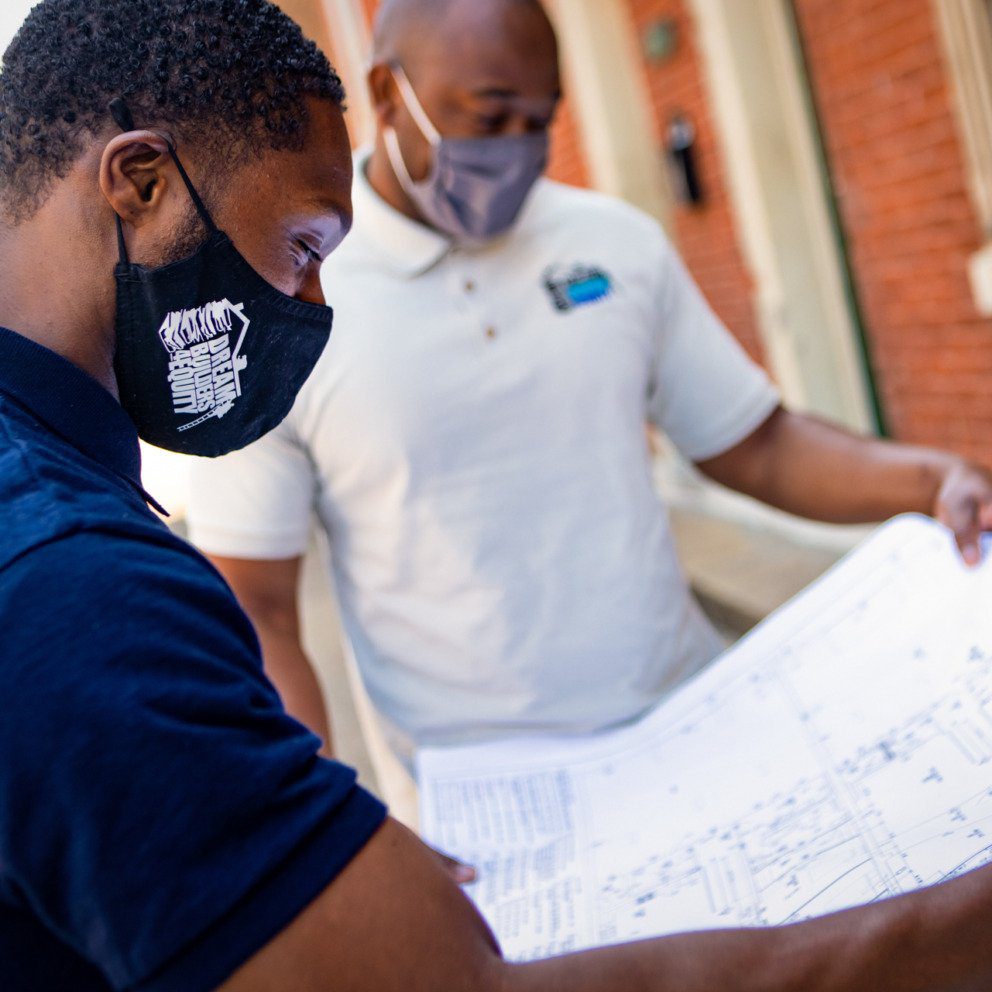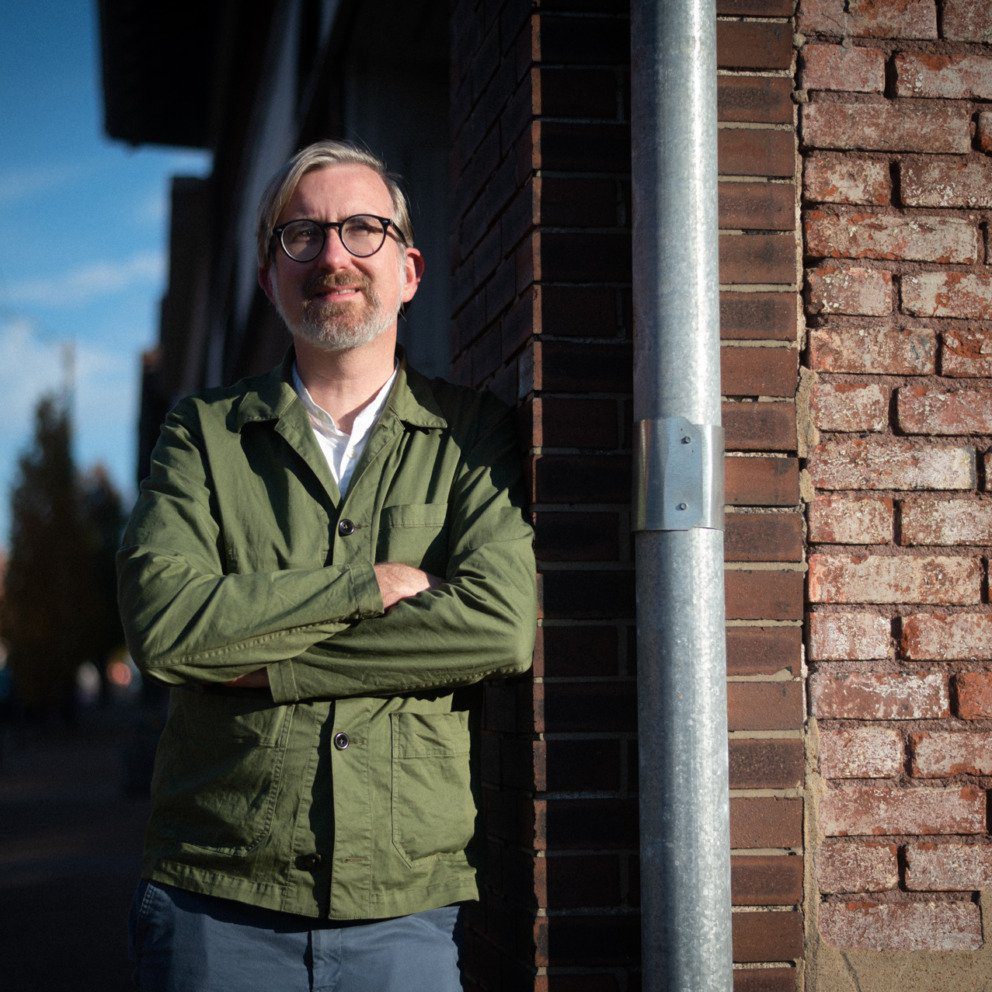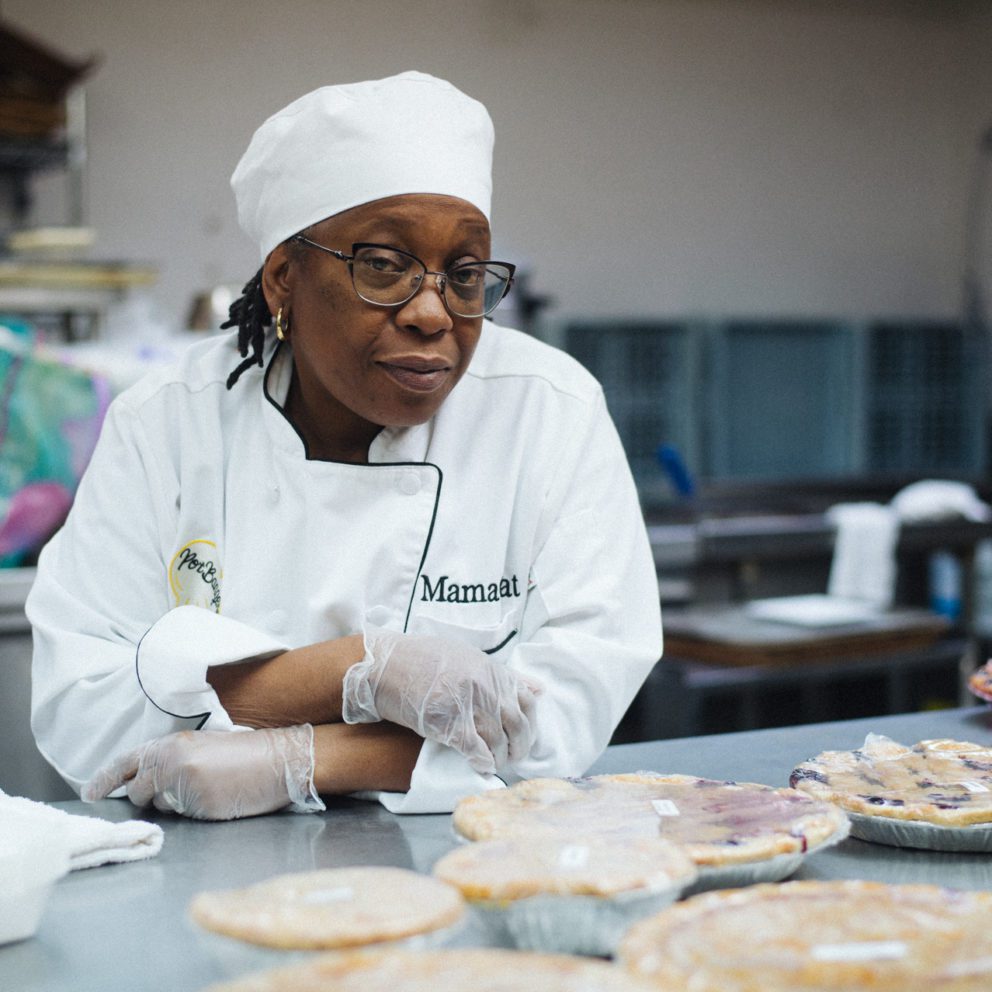The Courage to Dream
Dream Builders 4 Equity empowers young St. Louisans to achieve their goals.
As a young kid, Gerald Burton already showed an enthusiasm for rehabbing houses – even if the way he demonstrated it caused his mother some grief.
“My brother has painted since the age of twenty, so I used to mimic after him and try to copy him,” Burton recalls. “Even around the house, it would be things I didn’t even need to paint. I’d just go paint it and be like, ‘Hey mom, I painted those steps,’ even though they were already done.”
Now, a high school senior who has a six-month contracting apprenticeship under his belt, Burton can’t help but marvel at how far he’s come since those days wielding the paintbrush in his mom’s house. However, he credits the biggest transformation in his life not to the passage of time, but to his involvement with Dream Builders 4 Equity, the local nonprofit that empowers at-risk youth to achieve their full potential.
Founded in 2017 by Neal Richardson and Michael Woods, Dream Builders 4 Equity aims to transform lives by transforming neighborhoods. Focused equally on job skills training, financial literacy, entrepreneurship and personal development, the program places participants in a paid, on-the-job training environment where they learn through the lens of real estate development. By rehabbing houses in distressed neighborhoods – and learning about every step of the process along the way – they are armed with the knowledge and skills to realize their full potential, no matter where that leads them.
Rob McCulley is instrumental in helping them find that path. A veteran contractor with over twenty years of experience in commercial and residential real estate development, McCulley leads the Dream Builders 4 Equity home rehabilitation efforts. This puts him in prime position for mentoring the apprentices. Though his immediate job is to help them develop contracting skills so that they can help with the program’s housing efforts, he understands that what he’s teaching them goes way beyond framing out walls or hanging drywall.
“When the students come into the program, they’re excited, but they also don’t know what to really expect,” McCulley says. “You don’t know what you don’t know. That’s the first step, is to help them get some strong understanding of who they are and what they want to achieve in life. And then aiming them towards their purpose and giving them the courage to dream. So that’s really what our first aim is, is to give these students the confidence and the courage to dream.”
Allen Worth, now in his third season with Dream Builders 4 Equity, remembers his first day on the job site. A self-described anti-social kid, he admits he did not know what to expect and approached the program with a bit of skepticism.
“My social skills were limited because I was the type of person that really didn’t go out,” Worth says. “And when you don’t really go out, you become this person that’s always looking around, watching at a distance. I kind of had that against Dream Builders. I didn’t know anybody there except for Mike, and I didn’t really know how to take it, like interacting with other students. But when I went there day after day after day, I gained that confidence of being social with everybody there. And I just took off from there.”
Now an aspiring graphic designer and videographer who has funneled his passion into a car-focused YouTube channel, Worth describes his experience with Dream Builders 4 Equity as nothing short of empowering. Though he’s been thrilled with the contracting skills he’s acquired, he’s been especially moved by the personal development component of the program, which has allowed him to see himself beyond what he believes society expects of him. As he explains, students are not simply handed a hammer and told to get to it; they are required to really think through who they are and what they want to become so that when they finish the program, they can be in charge of their own destinies.
Richardson and Woods believe that this personal empowerment facet of Dream Builders 4 Equity is its very foundation. Though both men have achieved significant personal success – Richardson is Vice-President and Director of Business Impact Group for U.S. Bancorp Community Development Corporation; Woods is a real estate investor, entrepreneur, author and mentor – they acknowledge that their paths were not easy. When they founded the organization, they did so with the intent to give local youth the knowledge and opportunities they wish they’d had.
“I think it’s very important that we are able to see ourselves in the youth, but also the youth can see themselves in us,” Woods says. “I come from North St. Louis City. I had some of the craziest experiences growing up, but I was able to overcome those challenges. And I was not only able to overcome those challenges; I’m now able to be visible and saying, ‘You can make a complete change. You can do it and still be loved and respected in the same way as you were doing the wrong things.'”
McCulley, too, understands the importance of meeting participants where they are, while showing them where they can go. It’s not lost on him that there’s a power in seeing a burnt, distressed property transform into a glowing new home — it shows the kids on his crew that it’s possible to build something truly beautiful from the ashes, if you have the vision and determination.
“They’re coming from environments that are not so desirable sometimes,” McCulley says. “Being able to be an outlet for these young adults, man, it’s very rewarding. To be able to give them hope, to be able to go into the community and know that they’re playing a part in revitalizing the neighborhoods.
For Burton and Worth, the fact that Dream Builders 4 Equity encourages them to find a path to success by understanding who they are and what drives them is the key to its success. Though the construction skills they learn are valuable and the financial benefits from participating significant – one apprentice is putting himself through dental school with money earned through wages and equity gained from the program – they feel empowered to chart their own courses.
Part of that empowerment comes from participants achieving actual success as a result of the program, beyond their paychecks. One of the Dream Builders 4 Equity requirements is that the students journal about their experiences; those entries are then formatted into a book, which each student has complete ownership of. It’s one of the ways in which Richardson and Woods drive home the distinction between working for someone and having ownership of one’s own work.
“The book is the young people’s opportunity to really be celebrated by the community, but it’s also their combined lived experiences throughout the program,” Woods says. “Every day that they are going into these real estate sites, they’re going home and having to journal about these experiences. And when they journal about them, we combine them and then make it into a book that they then have 100% ownership of. It’s really the capstone of our program.”
“What happens is if we have huge book signings, and then we have the young people signing autographs and taking pictures, but also engaging with the community on a panel, they’re able to ask questions,” Woods says. “And these young people are able to own their story, own their narrative and receive every single dollar that is made at that event. So, I think, we’re putting our money where our mouth is on everything that we’re doing, and we’re giving them equity in a real way.”
How they choose to leverage that equity is then up to them. For Allen, this means graphic design, camera and video work and recruiting others to join him in what’s shaping up to be a video production endeavor. Burton is taking a completely different tack. A passionate and gifted writer, he hopes to be a journalist and plans to attend the University of Missouri in the fall of 2021. That both young men have been required to journal about their experiences as part of the program’s requirements has helped them put their dreams into perspective – dreams that many participants did not realize they even had until stepping onto that first job site.
“We had a student in our program who came in first day and was like, ‘I don’t even know what I want to do tomorrow; I don’t even know if I’m going to live to see tomorrow,” Richardson says. “And to be able to change that perspective – for them to be able to say, ‘Oh, I want to go to a trade school,’ or ‘I want to go into the carpenters’ union. I want to have a family. I want to own a home. I want to go to college. I want to give back to my community. I want to help lift up another student like I was lifted up.’ That’s the goal – to give these students a future, give them something to dream about, and then give them the support systems to actually realize those dreams.”
This story is the second of a series on Dream Builders 4 Equity. Check out Part 1: Dreaming Big and Part 3: Building the Future.
